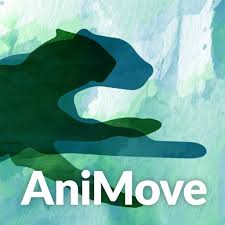Sept. 7th – 18th, 2020
Max Planck Institute of Animal Behavior
Radolfzell, Germany, Lake Constance
Animal Movement Analysis summer school is offered as a two-week professional training course, that targets students, researchers and conservation practitioners that are interested to work or even have already collected animal tracking data and want to learn how to analyze these data. Course participants will have the opportunity to apply learned techniques to their own data during the course.
Animal movement is critical for maintenance of ecosystem services and biodiversity. The study of complex movement patterns and of the factors that control such patterns is essential to inform conservation research and environmental management. Technological advances have greatly increased our ability to track, study, and manage animal movements. But analyzing and contextualizing vast amounts of tracking data can present scientific, computational, and technical challenges that require scientists and practitioners to master new skills from a wide range of computational disciplines.
AniMove is a collective of international researchers with extensive experience in these topics, teaches a two-week intensive non-profit training course for studying animal movement. This two-week course focuses on interdisciplinary approaches linking animal movement with environmental factors to address challenging theoretical and applied questions in conservation biology. To achieve this, participants will acquire significant skills in computational ecology, movement data processing and analysis, spatial modeling, environmental data analysis using remote sensing and Geographic Information Systems (GIS).
During the two week course, participants learn new skills through lectures and hands-on exercises in data management, analysis and modeling approaches. Among others, the following topics will be covered:
- Spatial data introduction
- Spatial data handling in QGIS and R
- Movement data in R
- Dealing with time, space, and projections in R,
- Visualizing movement data,
- Measures of movement,
- Trajectory based analyses including behavioral segmentation of movement paths,
- geometry of movement paths, simulating walks, path recursion
- Area based analysis including various home range measurements, and utilization distributions
- Linking environmental with movement data including raster and vector layers,
- remote sensing data, and statistical analyses.
Participants can work individually or in small groups. Following lectures participants have the opportunity to gain hands on experience by applying learned methods to data sets. Participants are encouraged to bring their own data to apply course content.
Throughout the course, only open source software (mainly R and QGIS) is used and all analyses rely mainly on open access environmental data sets. Evening lectures will provide the broader context of animal movement and remote sensing analysis.
Admission to this two-week course requires some prior working knowledge of R. More advanced techniques with regard to animal movement and remote sensing analysis will be introduced in the course, the main focus will be on the actual state-of-the-art analysis of animal movement and remote sensing data. Remote sensing, GIS, and modeling knowledge are advantageous but not mandatory for participation.
Date and Location
Course starts in the morning of Sept. 7th and ends on the evening of Sept. 18th, 2020 (arrival 6th, departure 19th)
Location: MPI-AB, Möggingen/Radolfzell, Lake Constanze, Germany
Application Procedure
submit one (1) pdf file with your CV (resume), a Personal Statement of Interest and Qualifications (maximum 350 words), and two references (just their name and email) of colleagues who are familiar with your professional/academic work. Please state clearly what your animal movement analysis and R skills are and what you expect from AniMove.
We will ask that each course participant bring their own laptop computer, with free software and R packages pre-installed. We will provide a list of software and packages prior to the course.
Course admission notifications will be emailed by March, 2020.
Application deadline: February 15th, 2020
Course Fees
The total cost for this two-week course is 1800 EUR (full board). Full board package includes course fees, accomodation, breakfast, lunch, dinner coffee/tea, snacks, and refreshments for the two weeks excl. parts of the weekend. Accommodation is multiple occupancy (max. 2 people) single sex en-suite rooms. Arrival on Sunday, Sept 6th and departure on Saturday 19th. Vegetarian options are provided. A limited number of “course only” packages including course fees, lunch, dinner, coffee/tea, snacks, and refreshments can be obtained upon request.
AniMove is a non-profit initiative, all lecturers are not paid. Fees are only used to cover expenses.
Course fee includes: Instruction, course participation and course materials. Accommodation for the two weeks Welcome and Closing dinners Meals and drinks (non-alcoholic beverages) for the two weeks (breakfast, lunch, dinner, coffee/tea, snacks, and refreshments)
Not included: Alcoholic beverages
Payment Deadline: April 30th, 2020
For more information: [email protected]
For submitting your application go here:


Add the first post in this thread.